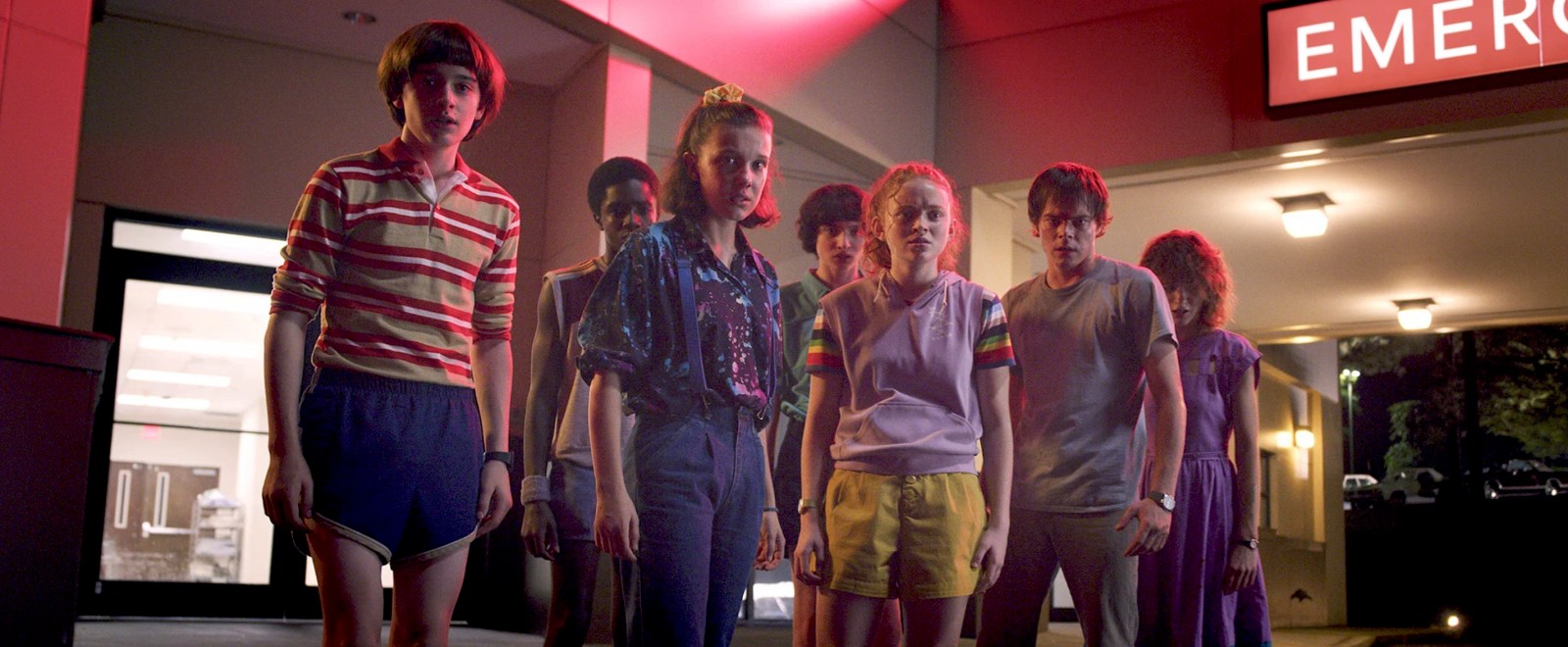So, over the years, something that I’ve learned is directors don’t particularly love it when you mention you don’t like one of their movies. And as I was talking to Tom McCarthy, I could hear the words coming out of my mouth as my brain was yelling, What are you doing? Don’t do that! (Before we get any further, this was not about Stillwater, a movie I did like.) The point I was trying to make to Tom McCarthy is that I appreciate him as a director because his movies are unique and he doesn’t seem to have much rhyme or rhythm to the projects he decides to make other than that they interest him. This is a director who made Spotlight, which won Best Picture. Then followed that up five years later with a movie for kids, Timmy Failure: Mistakes Were Made. That’s unusual! But then I felt I was being too complimentary and mentioned something along the lines of, “well I didn’t like The Cobbler.” And to McCarthy’s credit, he didn’t hang up. On the contrary, he seemed to appreciate the honestly. (To be fair I think he knows a lot of people didn’t like The Cobbler. Also, winning a Best Picture Oscar with your next movie, I assume, takes the sting out of such things.)
Stillwater is, decidedly, not a movie aimed at kids. For people who haven’t seen it, the plot still remains somewhat mysterious and appealing. Is it about Matt Damon playing a Trump voter from Oklahoma? Well, not really, because Damon’s Bill Baker did not vote for Trump, but because of a technicality (McCarthy addresses that ahead.) Is it a suspenseful action movie? No, but also there’s quite a bit of suspense, especially in the third act. Is it about a father trying to clear the name of his innocent daughter, Allison (Abigail Breslin), who is in jail for murder in France? Sort of, but it’s a lot more complicated than that. And that’s the beauty of Stillwater, even while watching, you have no idea where this thing is going.
Ahead, McCarthy explains why now, in this climate, he wanted to have a lead character from the reddest of the red states – who isn’t always doing, let’s say, the “right thing.” How Stillwater isn’t about Matt Damon’s Bill Baker – it’s about America as a whole.
Last time I spoke to you, you were at Sundance promoting Timmy Failure and you mentioned Stillwater a lot and I didn’t really know what that was.
That’s funny. I wonder why. I must have just had it on the brain. I was probably deep into work on it.
You said you were working on both at the same time.
Oh, that’s right. Yeah, you’re right. I was probably editing it when I was at Sundance.
A lot of people ask me about this movie and no one quite knows what it’s about. And I think you like that.
I do. I like movies that challenge folks and their perception of what a movie is. To me, there are real hard themes in this movie that I’m exploring. I think that’s quite clear. In terms of how people interpret it, that’s something else. To me that is the difference between movies and cinema, right? Cinema is ideas that we go away and talk about. Now if you’re talking about the story, the story’s the story, right? If someone says, “Okay. Explain the story.” It’s different, right? I could probably do it in two or three lines, generally. But once you start getting into the plot, you’re down the rabbit hole all the way.
Well last time you said, I’m paraphrasing, but you got to a point you don’t care what anyone thinks, because you’re making the movie you want to make and it was making you happy.
I mean, look, I think once you get to a point in your career where you realize you need to pursue what you’re passionate about. Now ultimately we want audiences to get lost in the movie and go on the ride. That’s our job. We want them to experience the movie and get lost. And I think if you walk into Stillwater and just go on the ride with Matt’s character, which I think is pretty extraordinary, it’ll take you places you don’t expect. And that’s sort of, for me, what movies are all about.
When people have their guesses what Stillwater is about, no one’s actually wrong. They just have one aspect of it.
Are you talking about people who have seen the movie or haven’t seen it?
I’m talking about people who have not seen it…
Look, the studio putting it out, Focus, they’ve sort of cut these original materials that are very sort of thriller-focused. I think it’s safe to say the movie obviously extends beyond the genre of “thriller.” Again, very much by design. But they’ve got to sort of figure out a way to package the movie just to pique people’s interests, get people in the doors.
But you know what? I’ve seen you say that. I’ve seen Matt Damon say that, that it’s not really a “Liam Neeson thriller,” which it’s not. But there are some legitimate thriller-type moments in here.
No question.
That third act, there’s some stuff in there that’s really tense.
Yeah, man. I totally agree. I mean, I wouldn’t have allowed them to cut the trailer if I didn’t feel that it wasn’t representative of an aspect of the movie. I think the movie is also very suspenseful.
Matt Damon’s character is asked if he voted for Trump. He said he didn’t because he has a criminal record. So, I’m curious why you wanted to dissect someone like him, but also keep his personal politics out of it. Because we’d really don’t hear him say much about it.
Well, because not everyone in the middle of the country, or even in deep-red states spends a lot of time thinking or talking about politics, believe it or not.
I’m originally from Missouri. They do not. That is true.
Seems to be our sport on some level? And maybe to a fault? I like to think sometimes we have elevated the politics to the point of religion at our own detriment, and that we need to be wary of that because I think everyone has seen themselves get more consumed than they want to in politics in the last four or five years, specifically. I’ve had friends say to me, “I’ve lost years of my life trying to understand why I’m angry about that.” There’s some truth to that, right? So I will say this: I started this five years ago, when it was a little less focused. And when I picked it back up in 2016 and engaged, I was really curious about Oklahoma and the people there. That’s when I started going and spending time and getting to know them – at probably the height of our country’s division, quite frankly. And it was truly intellectually exciting and engaging. And in some ways it was… What’s the right word? I don’t want to use the word “healing,” but there was something reassuring about it, I guess. Because here I am a filmmaker from New York totally dropping in on the lives of these roughnecks of Oklahoma, just hanging out with them. And it was fun. And it was interesting, and they were funny, and they were generous. And they brought me into their lives and shared, and I was impressed by them on a lot of levels. Truly impressed by them.
So why did you choose for his answer to be, “I couldn’t vote because I had a record,” as opposed to, “Yeah I voted for Trump”?
That’s a good question. I just think that moment, it’s really emblematic, and a lot of moments in this movie, which subvert our expectations. And life is usually more complicated. I think it says two things about this guy: Politics isn’t front of mind, one. And two, it tells us a little bit about who he is. He’s got a record. What did he do? And that’s important, and that’s authentic today in the roughnecks. They got into trouble with addiction, crime, law enforcement, even incarceration. So there’s no easy answer like, “Oh yeah. I didn’t want to identify.” I mean, I think if you’re in Oklahoma, not to vote for Trump is really weird.
Right. It is, I think, statistically the most red state.
It’s a state of Republicans. It’s, like, a given.
You used the word healing earlier. Do you find this character kind of healing for people to watch? That people in New York and LA are going to watch a guy from Oklahoma and they’re going to be rooting for him? And they might not agree with his politics, and we don’t know exactly what they are, but you’re still rooting for a guy from Oklahoma who probably disagrees with a lot of things you think.
Right. Which is, again, incredibly, how complex is life right now for you emotionally, psychologically, psychically? I can tell you, from a guy who’s got his head screwed on pretty straight, I’m confused as hell. It’s complex. It’s difficult to get a baseline. So I found the research spending time with these wonderful, wonderful guys, still is not reflective of all roughnecks. He’s a very specific character. He’s done some good things and he’s really done bad things. In some ways, he’s a damaged character. He’s a flawed character. Again, fish out of water in France, that just seems like something I would’ve seen 10 or 15 years ago in a movie. That seems dated. It’s part of the reason I cast Matt. I wanted people to trust and root for him and give him the better part of the judgment. I think this is a guy that’s really struggling and he’s making bad choices because he feels it’s the only choice he has. That sort of gets to the heart of the matter for me.
Well “benefit of the doubt” is a good way to put it.
I’m interested in something that’s a little more dimensional, authentic, realistic, and maybe challenging. And that’s challenging on a few levels, especially in this country where we’re conditioned to certain kinds of movies and a certain kind of story. And I think that when that gets challenged, even the most sophisticated of us push back. And I think, right now, those are the kind of movies I’m interested in at this point in my career. So, those are the kinds of movies that challenge and inspire me. John Wayne in The Searchers? How do you feel about them?
I just watched The Searchers recently. It’s fascinating because it’s almost like they didn’t tell John Wayne he’s not the hero. He’s basically still in one of his movies, but they didn’t tell him the themes surrounding him are, “We’re not on your side.”
I think you might not be far from the truth there. And I think it’s exactly what you want, because we have the generation of people conditioned to believe John Wayne’s the hero. He’s got the moral authority. That’s what this fucking movie’s about. Next time you want to talk about it in a bar, that’s what it’s about: America’s moral authority. Coming at a time in 2016, 2017, where suddenly our country that holds itself to such a high standard as the beacon, as the light, for equality and justice to the rest of the world. We’ll tell China they’re doing horrible things that are human rights issues. We are the moral authority. In 2016 and 2017 we weren’t that concerned about that. And the rest of the world was saying, “Do they have it? Are they acting in a way that we should trust their moral authority?” There’s a lot of great things about this country, but it’s a really mixed message, isn’t it? That is where we’re getting to, I think, as a society. The veils are dropping, right? And the tropes and stereotypes about exceptionalism and this and that are being challenged in a really real and authentic way. I think Bill Baker is emblematic of that.
‘Stillwater’ opens in theaters this weekend. You can contact Mike Ryan directly on Twitter.








